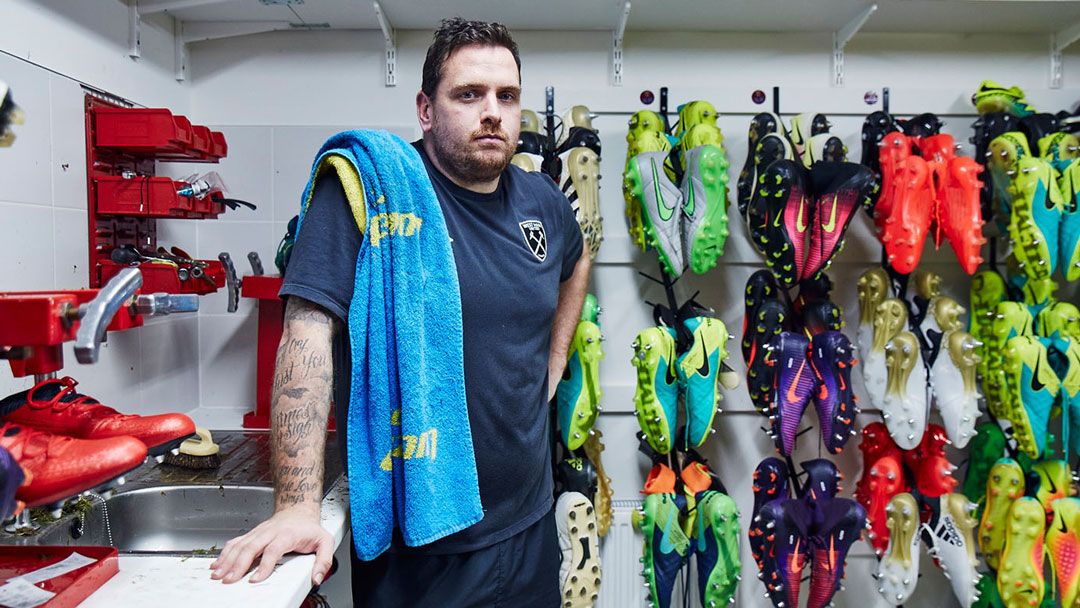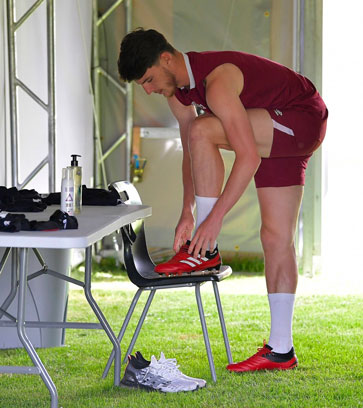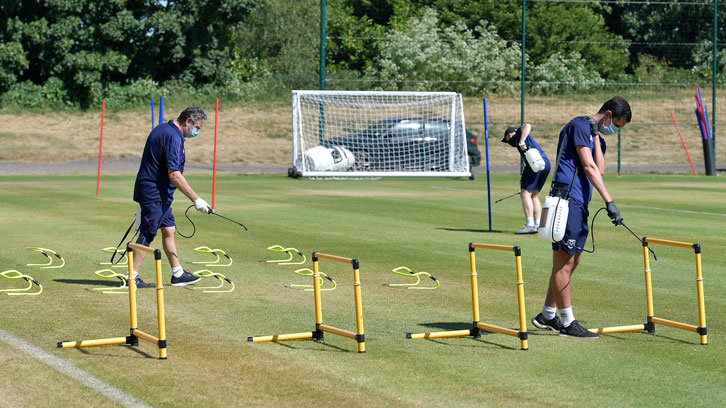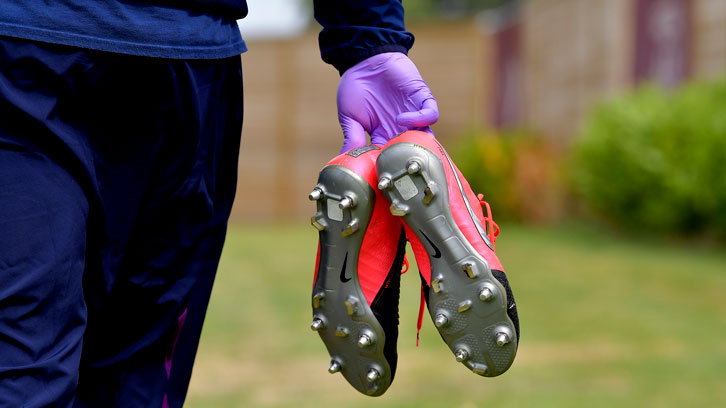
As West Ham United and their 19 fellow Premier League clubs move towards a return to Premier League resumption – having moved to Stage Two of the Return to Training protocol – a fundamental figure in accommodating the ever-changing requirements of first-team training has been kit manager James Saban.
During this time, West Ham have been strictly abiding to the protocols agreed by the Premier League, all 20 clubs, independent experts and the Government, while also putting many measures in place that go above and beyond the Government and Premier League recommendations.
We caught up with Saban about the challenges of keeping the squad kitted out to the backdrop of the COVID-19 outbreak…
How has the role of a kit manager changed during the coronavirus pandemic?
“We had a quiet period when this first came around, and then it was just a case of liaising with our physios and doctors as to what needed to be done. Everyone’s been brilliant in the process of it all.

“During lockdown the boys had to do a medical screening over two days, so once we knew when they were going to be there, it was a case of getting two sets of kit bagged up – two t-shirts, two pair of shorts, the socks they all wear, a couple of sweaters, a pair of bottoms – ready for them to take as they did the medical screening. They turned up and all the kit was there available to them.
“Since we’ve been training, the weather’s got a little bit better, so the boys have been asking for vests, which we printed up with their squad numbers a couple of weeks ago so they were ready for them when they came back in. It’s just a case of being ready for them and their requirements.
“On a daily basis, the players get told the group they’re training with and the pitch they’re training on. Based on that, we take their boots over in the morning into a tent, ready for the players to arrive. It might be a case where a player wants to change his footwear or change from a stud to a mould, so we need to be on hand for when they’re needed.
“Obviously, we’ve also got to make sure that the balls and equipment they’re using are being washed down in between sessions as well.”

What does that process of disinfecting the equipment involve?
“We’ve got two containers of disinfectant at the side of the pitch. There are four members of staff – we’ve got staff in from the Academy helping us out – so between them, Dougie [Robertson, Head Groundsman] and myself, we’re just liaising with the coaches so that when a section of training is finished, we can wipe it down, spray it down and then move onto the next part. It’s the same with the balls – the balls get washed in between sessions if there are two sessions going on each day.
“There’s enough to keep you busy – it’s a football club, it’s always busy! Also, we’re just taking the new stock of kit in for next season, so that’s a tricky one because we’re trying to put the new stuff away but still keep the old stuff, because we’ve got nine games to play!”
Players and staff are wearing masks and gloves. What was the process for providing PPE to them? And is it all thrown away after each session?
“We ordered the PPE through the medical department. Craig [Mazur], who’s one of the sports therapists, ordered the disposable gloves, which are disposed of after each session.
“We also had snoods available; there’s a company near us which provided us all with brand new snoods with the Umbro badge, having numbered them up. Each player has got three each, so after they’ve worn them, they’ve got more available to them.”
Were you involved in delivering training wear and equipment to players at home before and during lockdown?
“That was mainly Josh [Ewens], First Team Sports Scientist, who checked to see if any boys wanted anything, which was delivered to them safely.
“On my side, the boys have been asking for things like sets of footballs to play with in their gardens, and we’ve had boots delivered to their houses to keep them fresh in the short term. There’s been lots going on.”

The players began returning to Rush Green a few weeks ago for individual training, then small groups, and now they're moving to full squad training, so how does your job change?
“Obviously we have full-on days anyway, but when we recently had small group training, you’d have one group start at 10.30am, another group at 12.30pm and so on.
“We’re used to having all the players at once, but were having them spread out throughout the course of the day, so it was just a case of being there throughout the whole day for them, making sure they’re alright and they’ve got everything they need for training.
“Now, it’s the same sort of process really. The coaches will put the sessions on and let us know what they need equipment-wise, and we have to make sure they’ve got everything they need on the training pitches, ready to go.
“The coaches set up all the equipment – it’s all on the side of the pitches ready for them to just use when and where they need it, and you’ve always got myself on hand and the groundstaff on hand to help with putting it out for them safely.”
Finally, how important is it that the players feel secure in their surroundings as they further their preparations?
“It’s very important they all feel safe, and I think the Club has done brilliantly in terms of getting things up and running again in that way. It feels like a really, really safe environment to come into.
“For me, it’s just a case of adapting to what the new rules are and getting on with it. There’s always something to do here!”
